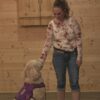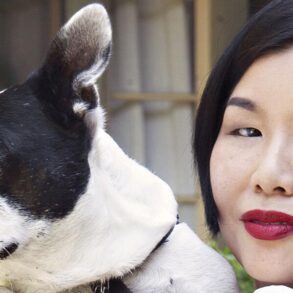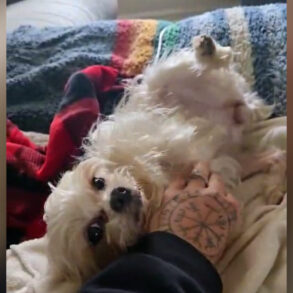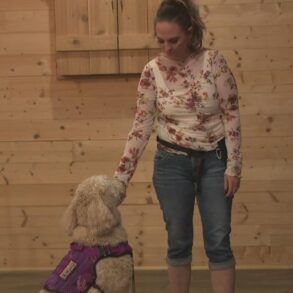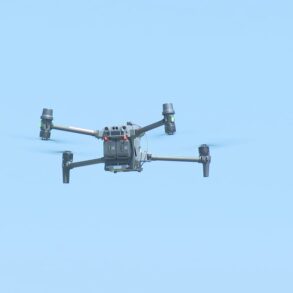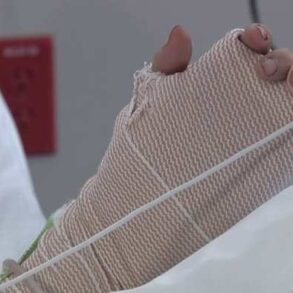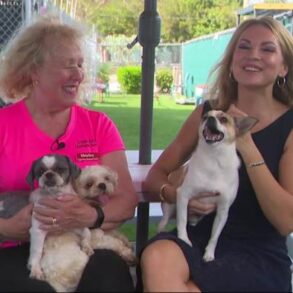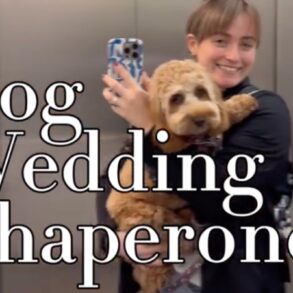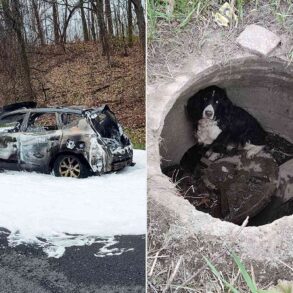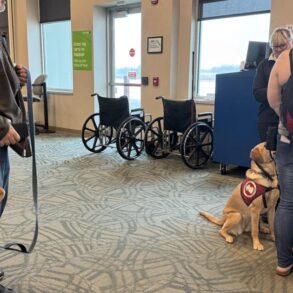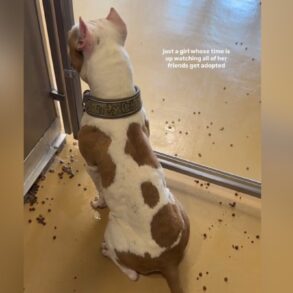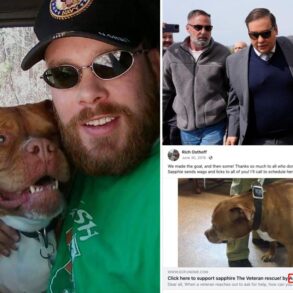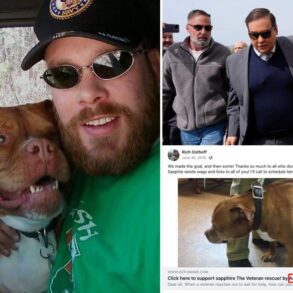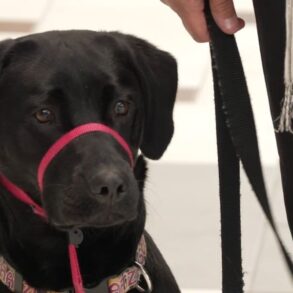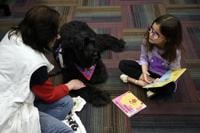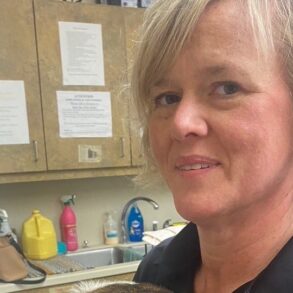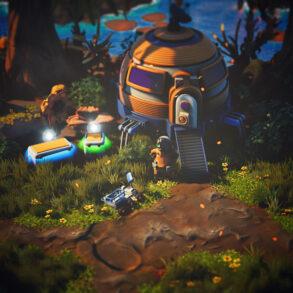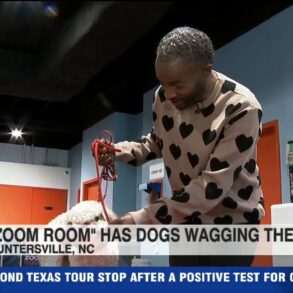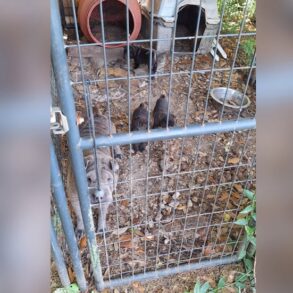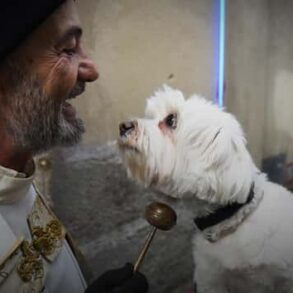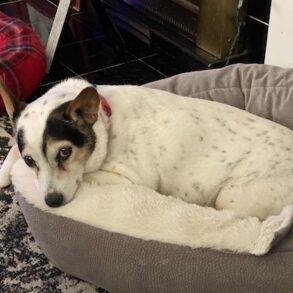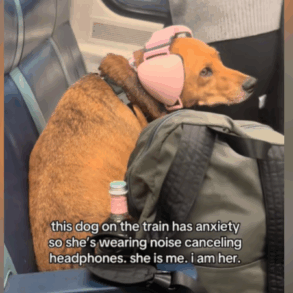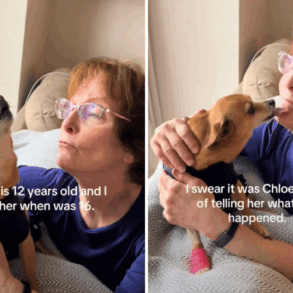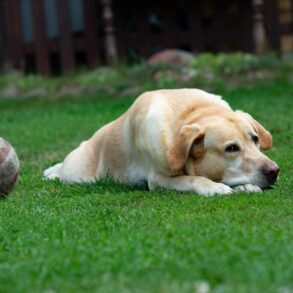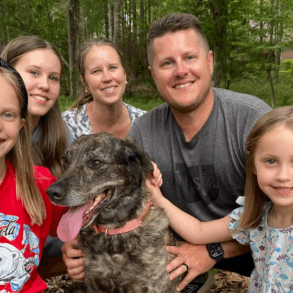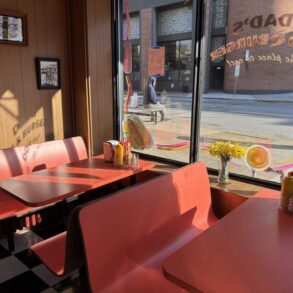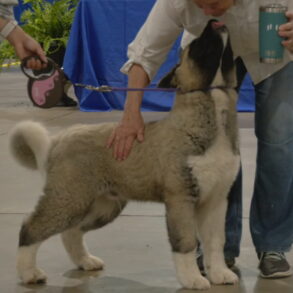Winery dogs can enjoy a status akin to rock stars in Sonoma County, gracing the cover of books, amassing love on social media, and in some cases, even boasting their own wine labels.
But the recent arrival of Flambeaux Wine’s new puppy Mella (short for Gemella, the Italian word for twin) is garnering a bit more than the typical oohs and aahs. A hard-to-find Italian Maremma breed, the adorable, wiggly 8-week-old furball is inducing smiles and countless questions everywhere she goes.
Mella is believed to be the world’s first cloned winery dog – an identical twin of Flambeaux’s winery dog Stella – only born nine years later. It’s a tough concept for many to wrap their heads around.
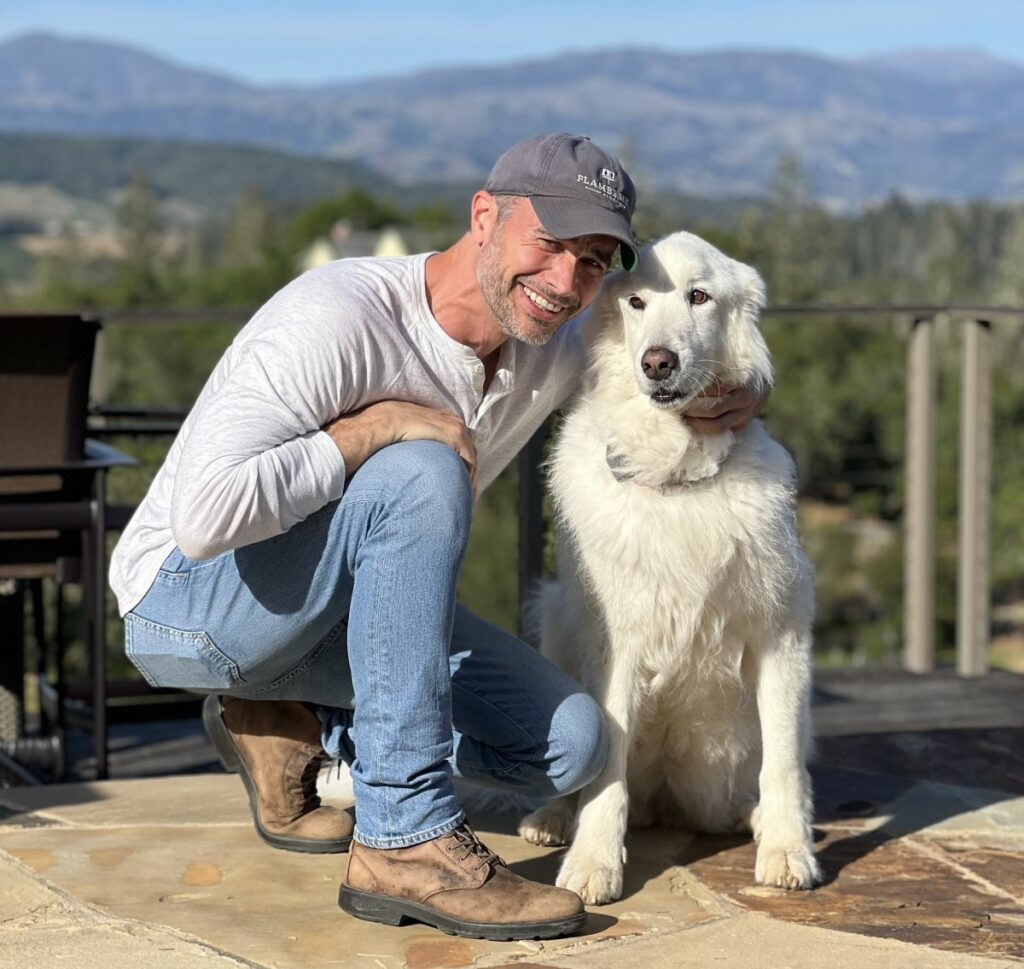
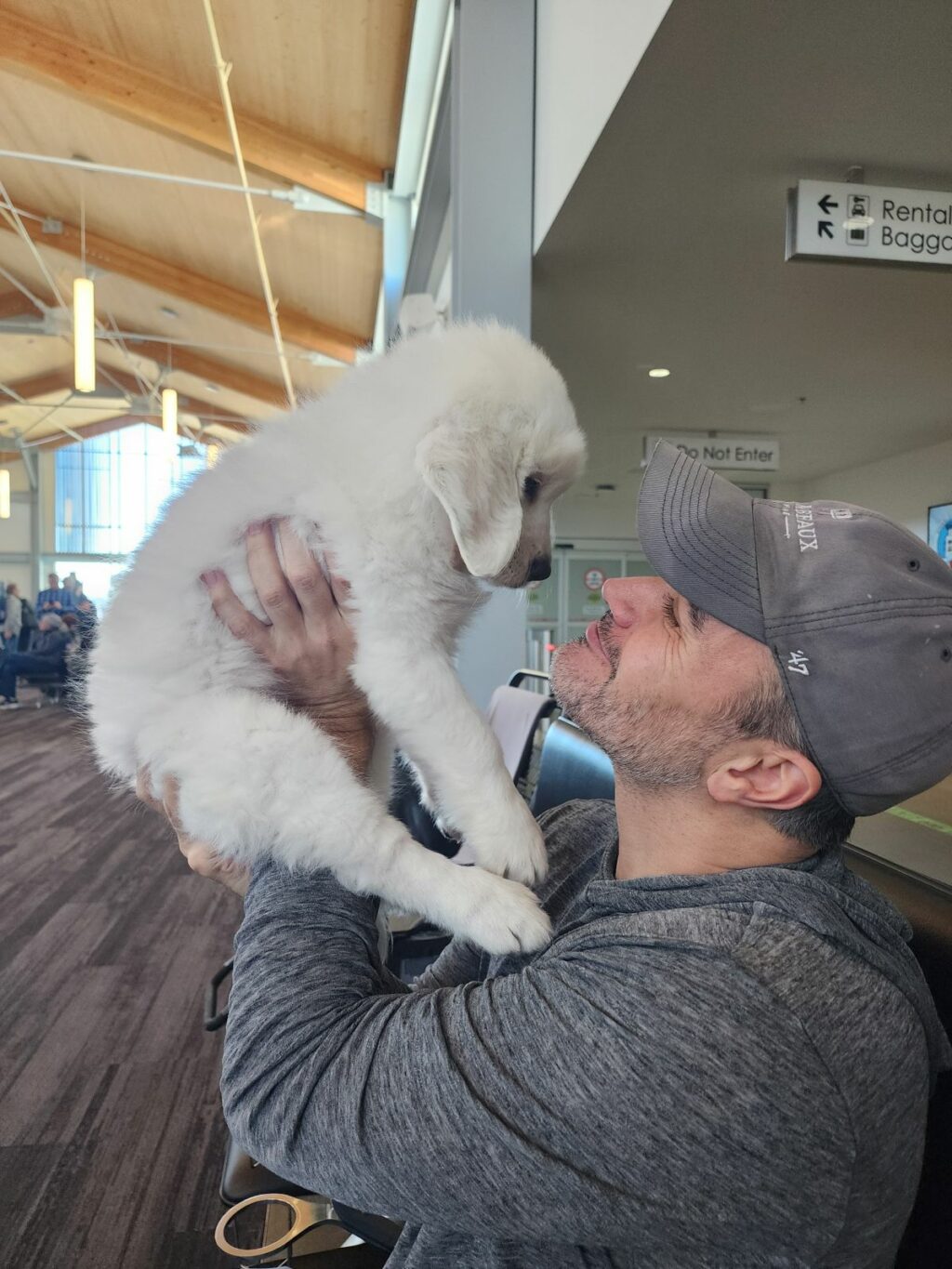
“I think of Stella as a unicorn dog. She’s just perfect,” said Flambeaux owner Art Murray. “She’s my whole world. Everybody laughs because it’s like, I baby that dog more than anybody.”
When Murray was unable to contact the breeder from whom he purchased Stella, a rare breed, a friend joked he should think about cloning Stella. The idea took root and he started researching the possibility.
“I’ve always been an outside-the-box person. It didn’t seem that strange to me,” said Murray. “But what I was worried about was the response that I would get from other people who don’t maybe have that same attitude, you know, like, ‘that’s weird’ or ‘that’s silly.’ ‘You should get a rescue dog.’ Of course, there’s a need for that.”
Texas-based ViaGen Pets & Equine has been cloning household pets for a bit more than a decade. But it’s not without controversy. Though it may seem like relatively new technology, it’s been nearly 30 years since the story of Dolly the sheep caught the world’s attention.
Today, cloning is not limited to dogs and cats. The application is also being used as a tool to help endangered species by increasing genetic diversity and boosting diminished populations. Working with the San Diego Zoo Wildlife Alliance since 2020, ViaGen has cloned two endangered Przewalski’s horses using cellular material cryopreserved more than 40 years ago.
While cloning a beloved pet might be appealing to some, it is prohibitively expensive for most animal owners. ViaGen charges $50,000 to produce a genetic twin of a dog or cat.
The company wouldn’t provide a specific number, but according to ViaGen business manager Lauren Aston, it has “cloned a few hundred dogs and cats” since 2014. For pet owners debating the possibility of cloning, the company will store and preserve a pets’ cells for $1,600, plus a $150 yearly fee.
“We have seen, since COVID, a huge surge in people wanting our services,” said Aston. “I cannot imagine my life without this piece of my soul. And we hear that consistently. It’s like a soul animal. It’s my soul pet. And those are the folks that have the tendency to say, this is for me.”
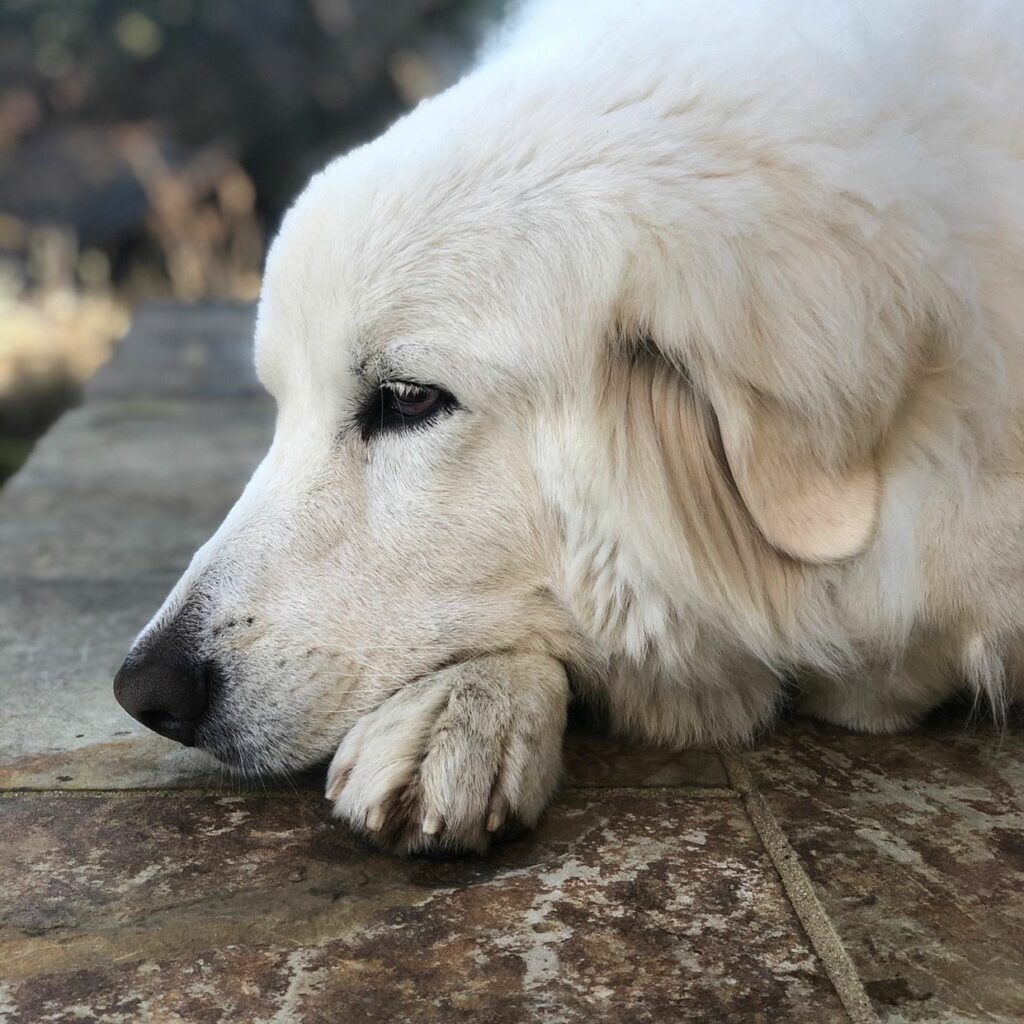
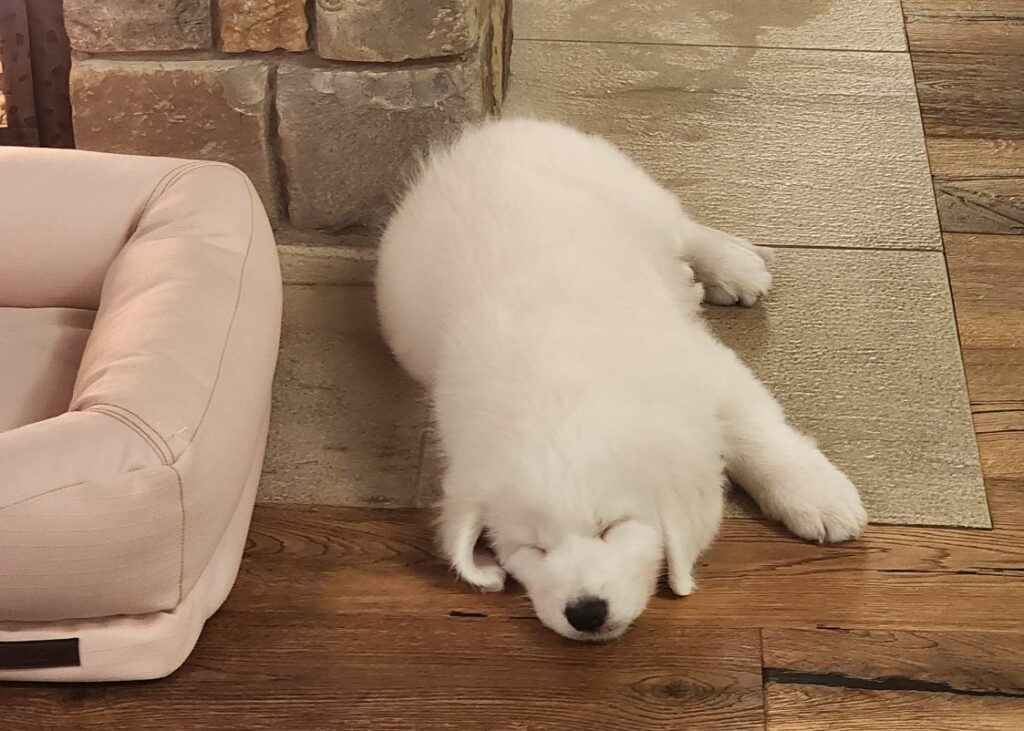
Dr. Margaret Basurto of Healdsburg Veterinary Hospital has cared for Stella since she was a puppy. When Murray decided to move forward with the cloning process, Basurto performed the required tissue biopsy.
“She’s such a good family dog. There’s just a lot of love surrounding this animal,” said Basurto. “One of the big things that my owners, each and every one of my owners, would tell you is that they just want more time with their pets.”
Stella’s tissue sample was transported to Texas, where ViaGen created an embryo, and in November 2024, implanted it into a surrogate dog. (According to ViaGen, surrogates are used once and adopted after giving birth.)
On Jan. 14, just shy of 8-weeks-old, Mella arrived in California via a flight to Charles M. Schulz – Sonoma County Airport. For Murray, it was love at first sight.
And though Stella and Mella are genetically identical, they are still two different dogs.
“I can already see some personality differences just having had both of them as puppies,” said Murray. “Mella plays with toys, listens to and responds to music, and watches TV. These are things that Stella has never done, not once.”
While a majority of pet owners make the choice to clone their animal after it has died, Murray opted not to wait. That way, Stella has some years to show her twin the ropes, providing time for everyone to bond.
“The way we live now, dogs are absolutely a part of the family. And you just get this slice of time with them and it just feels cruel,” Murray said. “At some point, [Stella’s] going to go, and I just can’t even imagine what it would be like to not have her. So, yeah, it may not be her, but I’ll have another to kind of ease that very difficult time.”
This post was originally published on this site be sure to check out more of their content.



